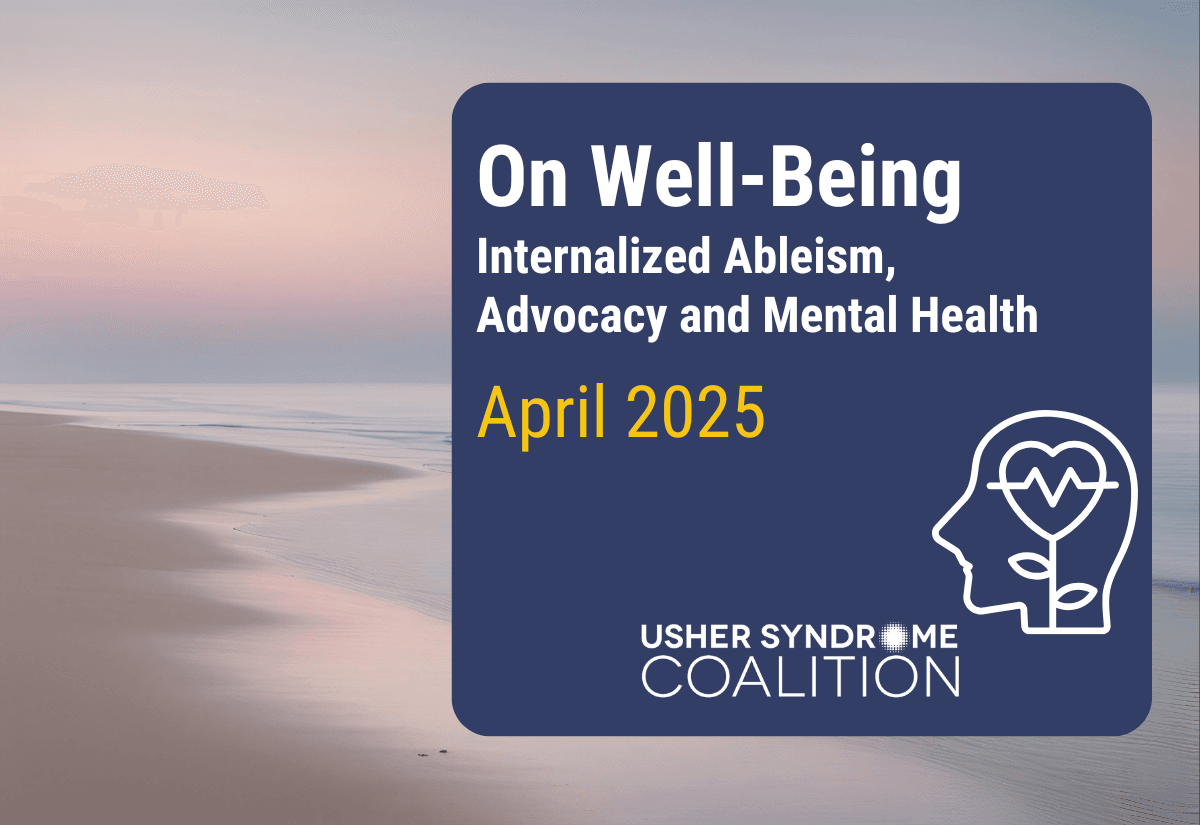
The intersection of disability, identity and mental health is something near and dear to me. As a mental health provider, I work with a diverse population, focusing on disability, including neurodiversity, sensory loss, intellectual disability and chronic health conditions. Prior to becoming a therapist, I worked in the developmental disability residential field. I received a master’s degree in Disability Studies in New York during a time when I identified myself as hard-of-hearing. About a year before I went back to school to become a mental health therapist, I learned I had Usher syndrome 2a. Having learned this new aspect of myself, I was suddenly contending with a new identity and meaning of disability as it shows up in my life.
My own journey with therapy has helped me understand what it means to advocate for myself; when to disclose and how to unpack feelings of shame, driven by my own internalizing of ableism. Internalized ableism, simply put, is when disabled people perceive and internalize society’s negative views on disability. This can lead to intense feelings of shame, low self-esteem and hopelessness (Johannsdottir et al., 2022). These mental health concerns can lead individuals to fearing asking for help or changes in environmental supports, fears of disclosure or masking (Kidwell et al., 2023). My own journey, not only contending with hearing loss, but the added loss of visual input, has placed me in several situations when I not only want to ask for help, but NEED to ask for help. I’ve learned to advocate for myself not through grandiose means, but rather, by asking for what I need, such as, “Hey, when we go to that concert, could you help me navigate?” Or while playing cards, “Could we turn the lights up in here?”
Feelings of grief and loss while processing this diagnosis is ongoing. Acceptance may be a by-product, however, acknowledging the loss and change can help move one towards resilience, perseverance, and fortitude. Seeking a mental health therapist who is well versed in disability can be life-changing. Also, the more you can connect with others who are experiencing what you are going through is really important – I have been so grateful for my own connection to other mothers with Usher syndrome. There are several support groups on platforms such as Facebook and Discord. Knowing that you are not alone - and others can commiserate with the on-going loss, sadness and small victories, can be monumental.
Becca lives in North Carolina with her partner and two kids. She enjoys working in the garden, running and hula-hooping. She owns a private practice called Vital Minds Counseling and Services PLLC.
References
Johannsdottir, A., Egilson, S. P., & Haraldsdottir, F. (2022). Implications of internalised ableism for the health and wellbeing of disabled young people. Sociology of Health & Illness, 44(2). 360-376, doi:10.1111/1467-9566.13425
Kidwell, K. E., Clancy, R. L., & Fisher, G. G. (2023). The devil you know versus the devil you don’t: Disclosure versus masking in the workplace. Industrial and Organizational Psychology, 16(1). 55-60, doi:10.1017/iop.2022.101







